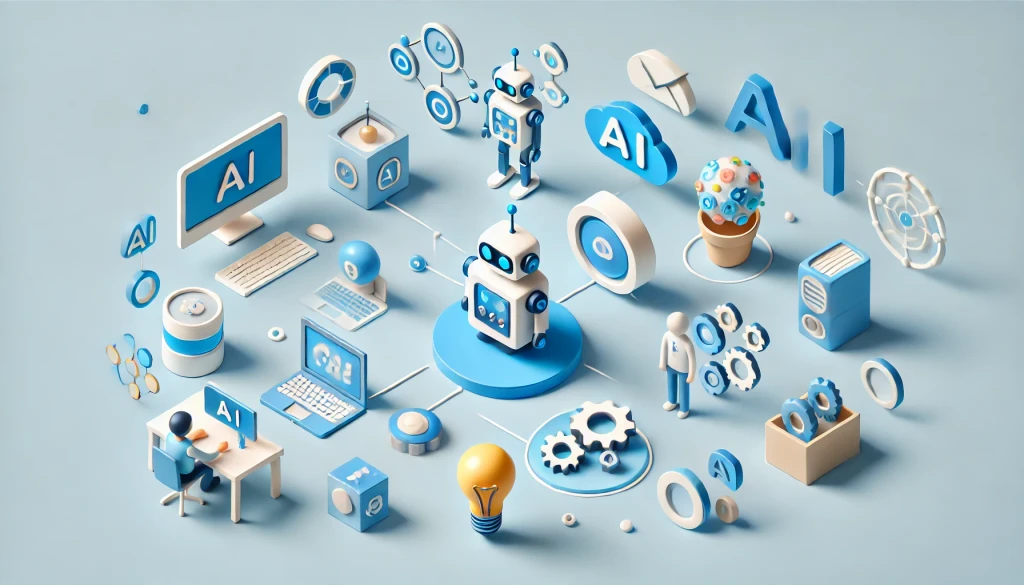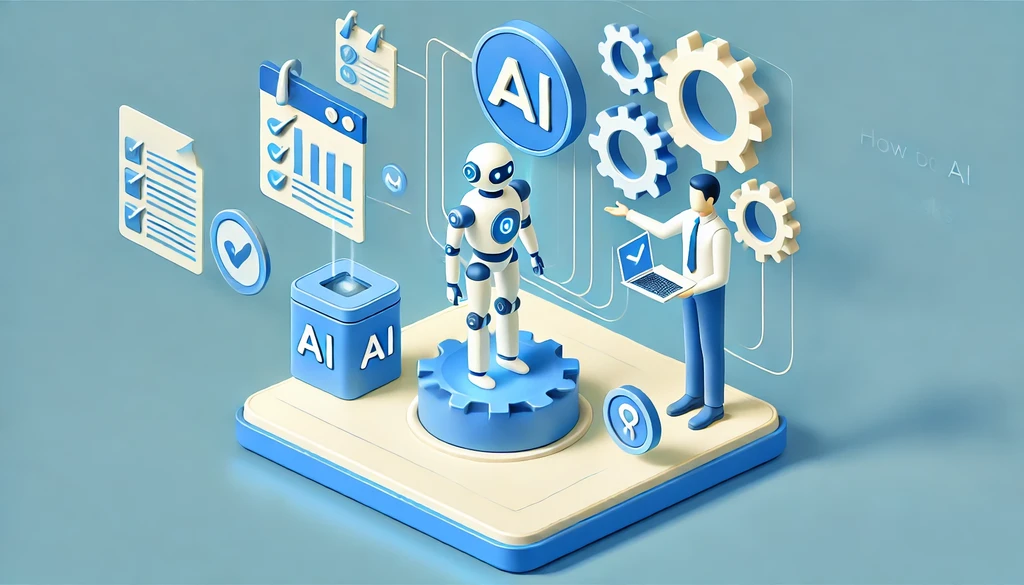How AI is Transforming Product Management for the Better?

Artificial intelligence (AI) is rapidly changing the way businesses operate, and product management is no exception. Once driven by intuition and manual analysis, product management is now becoming a more streamlined and data-driven process, thanks to AI. From predicting customer needs to automating mundane tasks, AI offers product managers an array of powerful tools to enhance productivity, collaboration, and innovation.
In this article, we’ll explore the pivotal role of AI in product management, its benefits, challenges, and its promising future. Whether you’re a seasoned product manager or just starting out, understanding how AI is transforming the field is essential to stay ahead.
What is the role of AI in product management?
AI plays a crucial role in helping product managers navigate the complexities of modern product development. At its core, AI enables data-driven decision-making by processing and analyzing vast amounts of data in real time. This capability empowers product managers to make more informed decisions and reduce risks associated with guesswork.
AI’s Key Contributions to Product Management
- Market Research and Analysis: AI tools can process customer feedback, competitor strategies, and market trends far more efficiently than manual methods.
- Product Development: By analyzing user behavior, AI helps identify the most valuable features to include in a product.
- Roadmap Planning: AI can prioritize tasks and features based on their predicted ROI, ensuring resources are allocated wisely.
- Performance Monitoring: AI continuously tracks KPIs and highlights areas for improvement, ensuring that products meet user expectations.
By integrating AI into these aspects of product management, teams can streamline operations and focus on strategic growth.
How Product Managers Can Leverage AI
AI offers a treasure trove of tools and technologies that product managers can use to enhance their workflows. Some of the most popular AI-driven tools include predictive analytics platforms, customer feedback analysis software, and task automation solutions.
Examples of AI Tools for Product Managers
- Predictive Analytics: Tools like Tableau and Google Analytics leverage AI to identify trends and forecast outcomes.
- Automation Platforms: Tools such as Trello and Monday.com use AI to manage workflows and track project progress efficiently.
- Customer Insights: Platforms like Qualtrics and Salesforce employ AI to analyze customer feedback and deliver actionable insights.
AI’s ability to automate repetitive tasks—like creating reports or analyzing market data—frees up valuable time for product managers to focus on strategy and innovation.
How can AI help improve customer satisfaction?
Customer satisfaction lies at the heart of successful product management, and AI is proving to be a game-changer in this area. By leveraging machine learning and predictive analytics, AI helps businesses anticipate customer needs and deliver tailored solutions.
Key AI Contributions to Customer Satisfaction
- Personalization: AI algorithms analyze user behavior to offer personalized product recommendations, enhancing customer loyalty.
- Proactive Problem-Solving: Predictive AI identifies potential issues before they arise, enabling teams to address them proactively.
- Enhanced Support: Chatbots and virtual assistants powered by AI provide 24/7 customer support, improving the overall experience.
For instance, e-commerce platforms like Amazon use AI to recommend products based on past purchases and browsing behavior, significantly improving customer engagement and satisfaction.
What are the challenges of using AI in product management?
Despite its many advantages, adopting AI in product management comes with its own set of challenges.
Top Challenges
- Data Privacy and Security: AI relies on vast amounts of data, which raises concerns about data protection and user privacy.
- Integration Difficulties: Incorporating AI into existing systems and workflows can be a complex and costly process.
- Bias and Ethics: AI algorithms can unintentionally perpetuate biases present in the training data, leading to unfair outcomes.
Product managers must navigate these challenges carefully by implementing robust data governance policies, ensuring transparency, and continuously monitoring AI systems for ethical compliance.
What’s the future of AI in product management?
AI’s role in product management is only set to grow as technologies become more advanced and accessible.
Future Trends
- Hyper-Personalization: AI will allow for even more detailed customization of products and services based on individual preferences.
- Smarter Automation: AI-driven tools will handle increasingly complex tasks, such as creating marketing strategies or managing supply chains.
- Enhanced Collaboration: AI platforms will facilitate seamless communication and collaboration across remote teams.
As AI continues to evolve, product managers will need to adapt and upskill to make the most of these advancements, ensuring they stay competitive in a rapidly changing landscape.

Peerbie’s AI Product: Enhancing Productivity and Collaboration
Peerbie is a prime example of how AI is revolutionizing product management. Its AI-powered platform is designed to streamline workflows, improve team collaboration, and boost productivity.
Key Features of Peerbie’s AI Solution
- Smart Task Management: Automates routine tasks and prioritizes important ones based on deadlines and impact.
- Real-Time Insights: Offers detailed analytics to track team performance and product progress.
- Seamless Communication: Facilitates effective communication across teams, regardless of location.
By leveraging Peerbie’s AI capabilities, product managers can focus more on strategic decision-making and less on administrative tasks, driving innovation and growth.
AI is undeniably transforming product management for the better, offering tools and capabilities that were once unimaginable. From improving customer satisfaction to streamlining workflows, AI empowers product managers to deliver more value in less time.
As AI continues to evolve, embracing its potential is no longer an option but a necessity. Product managers who leverage AI tools effectively will find themselves better equipped to tackle the challenges of tomorrow’s market.

